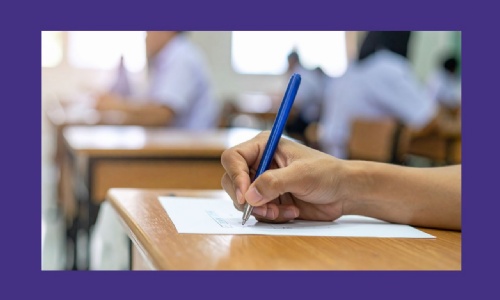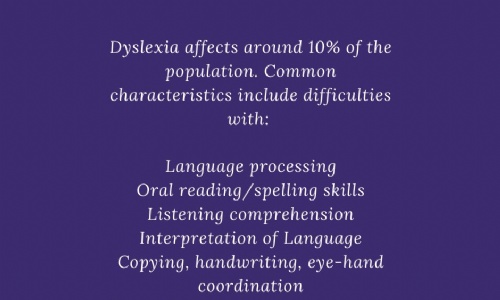Blog
Welcome to Exceptional Academics educational blog page. Here you can see topics that our tutors and specialists have written to provide hints, tips, additional material and best practices, helping our clients to aid their children in becoming exceptional academics themselves.
- Read MorePublished 27/02/26, by Nisha RIf you’re knee-deep in past papers, revision notes and the occasional late-night spiral, you’re not alone. Exam season has a way of creeping up quietly and then suddenly feeling overwhelming. There is no perfect formula that works
- Read More
Should GCSEs Be Scrapped? What It Might Mean for You and Your Child
Published 20/02/26, by Nisha RIt’s a question that resurfaces every few years: are GCSEs still fit for purpose?
- Read More
A-Levels vs International Baccalaureate (IB): Which Path is Best for Your Child?
Published 13/06/25, by Nisha RWhen it comes to post-GCSE education, two of the most popular choices for students in the UK are A-Levels and the International Baccalaureate (IB). But how do they compare, and which one is right for your child?
What are A-Levels?
A-Levels are subject-specific qualifications, typically taken by students aged 16-18. Most students take three to four subjects, allowing them to specialise in areas relevant to their chosen university degree.
What is the IB?
The International Baccalaureate (IB) Diploma is a broader academic programme requiring students to take six subjects (three at a higher level, three at a standard level) along with Theory of Knowledge (TOK), an Extended Essay (EE), and Creativity, Activity, and Service (CAS) components.
Key Differences
Factor A-Levels IB Subjects
3-4 subjects 6 subjects Depth vs Breadth
In-depth knowledge Broad curriculum Coursework
Varies by subject Extended essay & internal assessments Assessment
Mostly final exams Mix of coursework & exams Recognition
UK universities Global recognition Which One Is Best?
-
Choose A-Levels if: Your child has strong subject preferences and wants to specialise in subjects they love or excel in.
-
Choose IB if: They prefer a broad education and might study abroad.
Regardless of the choice, expert guidance is key. Our tutors specialise in both A-Levels and IB examination preparation, and can support students in whichever examination curriculum they follow.
Email us for bespoke and subject-specialist A-level or IB advice!
-
- Read More
Understanding A-Levels: AS vs. A2 - What’s the Difference?
Published 06/06/25, by Nisha RWhat Are A-Levels?
A-Levels (Advanced Level qualifications) are subject-based exams typically taken by students aged 16-18 in the UK. They play a crucial role in university admissions, as students usually need three strong A-Level grades to secure places at top universities.
A-Levels are divided into two parts:
- AS Level (Advanced Subsidiary): Taken in Year 12, usually at the end of the first year.
- A2 Level: Taken in Year 13, forming the full A-Level qualification.
AS vs. A2: What’s Changed?
Until 2015, AS-Levels counted as 50% of the final A-Level grade, but reforms removed this link. Now, AS-Level results no longer contribute to the final A-Level grade.
How Many A-Levels Should a Student Take?
Most students take three A-Levels, but some high-achievers take four. The right number depends on:
-
University requirements: Oxbridge and medicine applicants may benefit from four subjects.
-
Workload: A-Levels are significantly harder than GCSEs. Independent study and research are required at this level.
-
Course flexibility: Some students prefer to start with four subjects in Year 12 and then drop one in Year 13.
Choosing the Right Subjects
-
STEM fields: Maths, Physics, Chemistry, Biology.
-
Humanities & Social Sciences: English, History, Geography, Politics, Psychology.
-
Creative subjects: Art, Drama, Music.
-
Business & Economics: Economics, Business Studies, Accounting.
University Admissions: What Matters More?
Since AS results no longer contribute to A-Levels, universities now rely on:
- Predicted grades: Based on Year 12 performance.
-
Personal statement & references.
-
Admission tests & interviews: Required for Oxbridge, Medicine, and Law.
If you’re unsure which A-Levels to take, our expert subject specialists can guide you.
Email us now to discuss how we can help with bespoke and subject-specialist A-Level tutoring!
- Read More
The Ultimate 11+ Preparation Guide: How to Help Your Child Succeed
Published 23/05/25, by Nisha RThe 11+ exam is a highly competitive test that determines entry into grammar schools and some independent schools. Since thousands of students sit the exam for a limited number of places, structured preparation is key. What Does the 11+ Exam Cover - Read More
11+ Exams: Grammar Schools vs. Independent Schools - What’s the Difference?
Published 22/05/25, by Nisha RFor many parents, the 11+ exam is the first major academic milestone in their child’s education. However, one of the biggest questions is whether to apply to grammar schools or independent schools and understanding their key differences is es - Read More
Developing Good Learning Habits
Published 22/08/23, by Nisha RAmina attended the recent Independent School Show (ISS) in London where Heads of some of the most prestigious schools were invited to speak at the podium to parents and provide insights on how to navigate the admissions process with success. One topic that came up was about how to develop good learning habits in children. Amina has provided a list of some of the things parents can do to set this process in motion.
- Read More
Science Revision
Published 21/04/23, by Nisha RScience Revision Top Tips written by our tutor Era.
- Read More
The signs of dyslexia
Published 21/04/23, by Nisha RWe wanted to share an article written by our SEN team for the Nappy Valley Net Schools Guide 2022/23 highlighting the signs of Dyslexia.
If you suspect your child may have dyslexia:
Ask teachers to send key vocabulary for the week so your child can practise reading and spelling.
When reading aloud to them, ask them to jot down any word they do not understand or know how to spell onto colourful sticky notes. You can write down the correct spelling later. (A dyslexic child may not be able to find the word easily in the dictionary).
Younger children may find deconstructed words, written out onto jigsaw shapes, really useful. They can practise putting the words back together and reading the spelling aloud. Then they can practise writing the words, tracing over them using tracing paper. - Read More
Thinking scientifically
Published 19/05/22, by Nisha RA recent article from the Guardian (April 2022) inspired one of our tutors to write the following blog...
Read More - Read More
Latin is not a Dead Language
Published 13/08/21, by Nisha RJulian - Education Consultant and Latin Teacher

.png)

.png)
.png)
.png)
.png)





